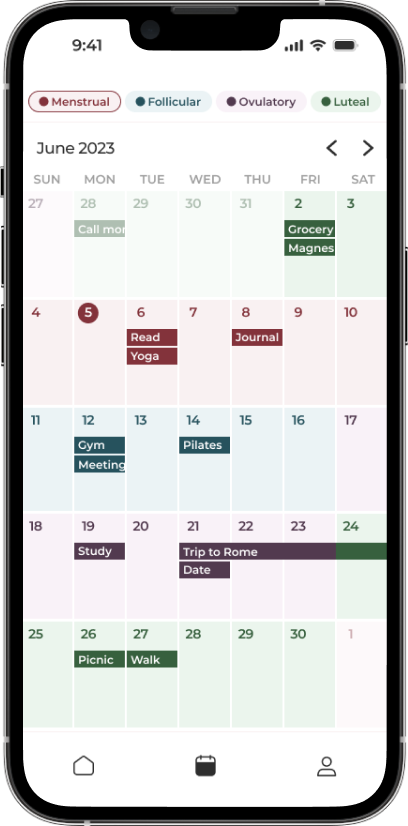Can a Life Coach Help with Confidence?

Confidence is a cornerstone of personal growth and success. It influences how we approach challenges, interact with others, and pursue our goals. For many individuals, low self-esteem and diminished confidence can be significant barriers to achieving their full potential. In such cases, the question arises: Can a life coach help with confidence? In this article, we will delve into the complexities of confidence issues, including examples of low self-esteem, the different kinds of confidence challenges people face, and the various ways in which a life coach can provide valuable assistance.
Understanding Low Self-Esteem and Confidence Issues
Low self-esteem and confidence issues manifest in various ways and can affect nearly every aspect of a person’s life. Here are some examples of what low self-esteem may look like:
1. Negative Self-Talk
Individuals with low self-esteem often engage in negative self-talk, constantly criticizing themselves and undermining their abilities. This inner dialogue can be harsh and self-sabotaging.
2. Seeking Constant Validation
People with low confidence may constantly seek external validation from others. They rely on praise and approval to feel good about themselves, leading to a lack of self-validation.
3. Avoidance of Challenges
Low confidence can deter individuals from taking on new challenges or pursuing their goals. They fear failure and often prefer to stay within their comfort zones.
4. Comparing Themselves to Others
Individuals with low self-esteem frequently compare themselves to others and perceive themselves as inferior. This habit of comparison can erode self-worth.
5. Perfectionism
Perfectionism is a common trait among those with low confidence. They set unattainable standards for themselves and become frustrated when they fall short.

Check out the Vision to Action Planner for only 6$
More info6. Difficulty Accepting Compliments
People with low self-esteem may deflect compliments or have difficulty accepting them. They often doubt the sincerity of praise.
7. Fear of Rejection
A fear of rejection or disapproval can be paralyzing for individuals with low confidence. They may avoid social situations or hold back from expressing their opinions.
Different Kinds of Confidence Challenges
Confidence issues are not one-size-fits-all; they can manifest in various forms, each requiring a unique approach. Here are some common types of confidence challenges:
1. Social Anxiety
Social anxiety often stems from low self-confidence. People with social anxiety may feel self-conscious, fear judgment, and avoid social interactions.
2. Imposter Syndrome
Imposter syndrome is characterized by a persistent feeling of being a fraud despite evidence of one’s competence. It can erode confidence in professional settings.
3. Body Image and Self-Esteem
Issues related to body image can significantly impact self-esteem and overall confidence. Society’s beauty standards can contribute to these challenges.
4. Career and Professional Confidence
Low confidence in the workplace can hinder career advancement. It may manifest as reluctance to take on leadership roles or speak up in meetings.
5. Relationship Confidence
Confidence issues can affect relationships, leading to insecurity, jealousy, and difficulty in establishing healthy boundaries.
Quiz: What Is Blocking Your Success?
This quick quiz will help you figure out which mental or behavioral pattern might be holding you back from achieving your full potential. Identifying your specific success blocker is the first step toward breaking through to new levels of achievement and fulfillment.
Read each question and choose the answer that feels most true to your situation.
No email or payment is required to complete the quiz and receive your personalized insights.
Once you have your primary success blocker, you have clarity about what’s been holding you back. This awareness is powerful—many people spend years struggling without understanding the specific pattern that’s limiting their progress.
Remember, these patterns aren’t permanent character traits but rather habitual ways of thinking and behaving that can be changed with the right guidance and practice.
If you’re ready to break through your specific blocker and achieve the success you know you’re capable of, send me an email to try out a coaching session. Your breakthrough awaits!
Ways in Which a Life Coach Can Help
Life coaches are skilled professionals who can provide guidance and support to individuals grappling with confidence issues. Here are several ways in which a life coach can be instrumental in helping individuals boost their self-esteem and confidence:
Self-Exploration and Awareness
A life coach can facilitate self-exploration and encourage clients to gain a deeper understanding of themselves. This self-awareness is essential for identifying the root causes of low self-esteem. Through introspective exercises and open dialogues, life coaches assist individuals in uncovering past experiences, traumas, or thought patterns that may be holding them back. By shining a light on these hidden factors, clients can start to address and heal old wounds, paving the way for a more profound sense of self-confidence and self-worth. Furthermore, self-awareness allows individuals to better recognize their strengths and talents, empowering them to harness these attributes to boost their confidence and pursue their goals with clarity and purpose.
Challenging Negative Beliefs
Life coaches help clients recognize and challenge negative beliefs and thought patterns that contribute to low confidence. They assist in replacing self-criticism with self-compassion. Through thoughtful questioning and cognitive reframing techniques, life coaches guide individuals in shifting their internal dialogue from self-doubt to self-encouragement. This process of challenging negative beliefs is transformative, allowing clients to break free from the shackles of self-limiting thoughts and cultivate a more positive and empowering mindset. As individuals learn to be kinder and more supportive to themselves, their self-esteem naturally rises, fostering greater self-confidence and resilience in the face of adversity.
Setting Realistic Goals
Life coaches work with clients to set achievable goals that align with their abilities and values. Accomplishing these goals can boost confidence and create a sense of accomplishment. By collaboratively defining clear and attainable objectives, life coaches help individuals break down their larger aspirations into manageable, step-by-step actions. This approach not only makes progress more tangible but also builds confidence as clients witness their own capabilities and achievements. Setting realistic goals reinforces the belief that success is within reach, providing motivation and a stronger foundation for sustained self-assurance.
Developing Self-Compassion
Self-compassion is a cornerstone of confidence. Life coaches guide clients in treating themselves with kindness, especially in moments of failure or setbacks. Through mindfulness exercises and self-compassion practices, individuals learn to embrace their imperfections and mistakes as part of the human experience. This self-forgiving attitude reduces the impact of self-criticism and fosters a nurturing relationship with oneself. As self-compassion becomes a daily habit, clients find it easier to bounce back from setbacks and maintain a healthy level of self-confidence, even when facing challenges.
Building a Growth Mindset
A growth mindset is the belief that abilities and intelligence can be developed through effort and learning. Life coaches help clients adopt a growth mindset, enabling them to embrace challenges as opportunities for growth. By reframing failures as valuable learning experiences and emphasizing the importance of effort and perseverance, individuals cultivate a mindset that views setbacks as stepping stones toward improvement. This shift in perspective not only enhances self-confidence but also fuels a continuous cycle of self-improvement, where individuals become more resilient, adaptable, and confident in their ability to overcome obstacles.
Overcoming Fear of Failure
A common barrier to confidence is the fear of failure. Life coaches assist clients in reframing failure as a natural part of the learning process, reducing the fear associated with it. Through a combination of exposure therapy and positive reframing, individuals learn to view failures as valuable feedback rather than personal shortcomings. They develop the resilience to bounce back from disappointments, understanding that each setback brings them one step closer to success. Overcoming the fear of failure not only boosts self-confidence but also empowers individuals to take calculated risks and pursue their goals with greater determination and courage.
Effective Communication Skills
Life coaches work on improving communication skills, enabling clients to express themselves confidently and assertively in both personal and professional settings. By practicing active listening, effective body language, and clear articulation, individuals become more adept at conveying their thoughts and feelings with conviction and clarity. These improved communication skills not only enhance self-confidence but also empower individuals to advocate for themselves, build stronger relationships, and navigate social interactions with poise and assurance.
Techniques for Managing Anxiety
For clients dealing with social anxiety or performance anxiety, life coaches can provide techniques and strategies for managing and mitigating anxiety. These strategies may include mindfulness exercises, deep breathing techniques, visualization, or exposure therapy. By learning to control and channel their anxiety, individuals can approach challenging situations with greater calmness and confidence, allowing them to perform at their best even in high-pressure scenarios.
Accountability and Action Plans
Life coaches help clients set action plans to achieve their confidence-related goals. Regular check-ins and accountability support progress. Creating well-defined action plans with clear objectives and timelines ensures that clients stay on track toward building their confidence. Life coaches serve as a reliable source of accountability, conducting regular check-ins to review progress, troubleshoot obstacles, and adjust strategies as needed. This structured approach not only maintains momentum but also reinforces the commitment to personal growth and increased confidence.
Celebrating Achievements
Acknowledging and celebrating small victories is vital for building confidence. Life coaches encourage clients to celebrate their successes along the way. Recognizing and celebrating achievements, no matter how small, reinforces a positive self-image and bolsters self-esteem. Life coaches help individuals appreciate their progress, fostering a sense of pride and motivation that fuels further self-improvement. These celebrations serve as reminders of the journey’s significance and the enduring growth of self-confidence.
Conclusion
Confidence is not a fixed trait but a skill that can be nurtured and developed over time. Life coaches play a pivotal role in assisting individuals in overcoming low self-esteem and confidence issues. By providing guidance, support, and tailored strategies, life coaches empower their clients to cultivate a strong sense of self-worth and confidence that extends into every aspect of their lives. Whether it’s addressing social anxiety, imposter syndrome, body image concerns, or career-related challenges, a skilled life coach can help individuals embark on a transformative journey toward greater confidence and self-assurance.
Still waiting for the 'perfect time'?
Email me what you'd do if you stopped making excuses. We'll work backwards from there.
Let's startRecent posts
-
The Complete Guide to Becoming a High Achiever
Read blog -
How To Make a Positive Impact in Your Community
Read blog -
What Is the “Winter Arc” Challenge?
Read blog -
What Is "the Great Lock-In" and Should You Try It?
Read blog -
What Are the 75 Hard and Soft Challenges?
Read blog -
How to Validate Yourself
Read blog

The App Made To Sync Your Lifestyle to Your Menstrual Cycle.
A solution for women who are looking to keep track of what they sync to their cycles, such as fitness, diet, etc. by adding it to a calendar that also predict their phases.
Learn more





Comment